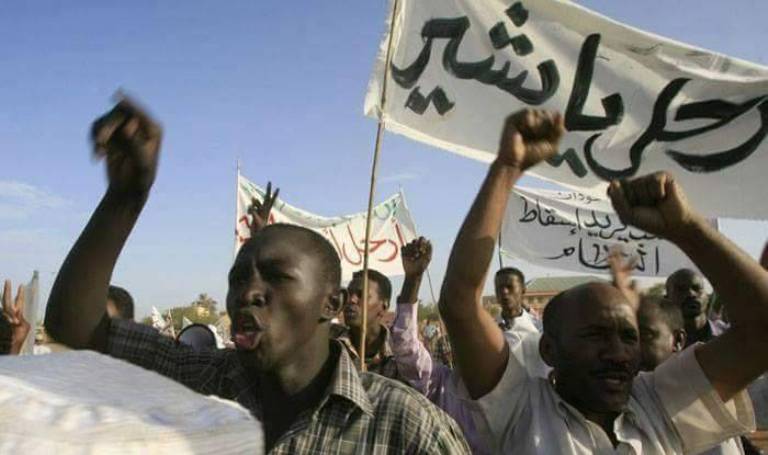Scattered protests erupt in Sudan over economic woes

January 5, 2018 (KHARTOUM) – Sporadic protests have erupted on Friday in Khartoum and the Gazira State in central Sudan against the recent government decision to increase the bread price.
On Friday, bakeries raised the price of a loaf of bread from 50 cents to 1 Sudanese pound following a government decision to increase the price of flour sack from 167 pounds to 450 pounds.
The government decision was part of tough economic measures contained in the 2018 budget which also saw the lifting of electricity subsidies as well as increasing the U.S. dollar exchange rate to 18.00 pounds from the official rate of 6.7 pounds.
Several neighbourhoods in the Sudanese capital including Al-Sahafa, Al-Kalakla, Al-Giraif and Burri on Friday witnessed limited demonstrations where the protesters burned car tires to block some streets.
Also, police on Friday used tear gas and batons cautiously to disperse protesters in the neighbourhoods of Al-Mazad, Shendi Foug, Al-Hilla Al-Jadida and Al-Dibaga in Wad Medani, capital of the Gezira State.
There were reports that several protesters have been injured and unknown numbers were captured by the security forces.
To quell anti-austerity protests in Khartoum, Sudanese security forces in September 2013 carried out a brutal crackdown on the peaceful demonstration, killing nearly two hundred protesters say human rights groups or 86 people according to government figures.
On Thursday, the opposition called on the Sudanese people to take to streets to protests against the unprecedented rise in the cost of living and commodity price.
Opposition forces attribute the deteriorating living condition and economic meltdown to corruption, lack of production policies, and lack of economic reform vision following the secession of South Sudan.
Sudan lost 75% of its oil reserves after the southern part of the country became an independent nation in July 2011, denying the north billions of dollars in revenues. Oil revenue constituted more than half of Sudan’s revenue and 90% of its exports.
(ST)
